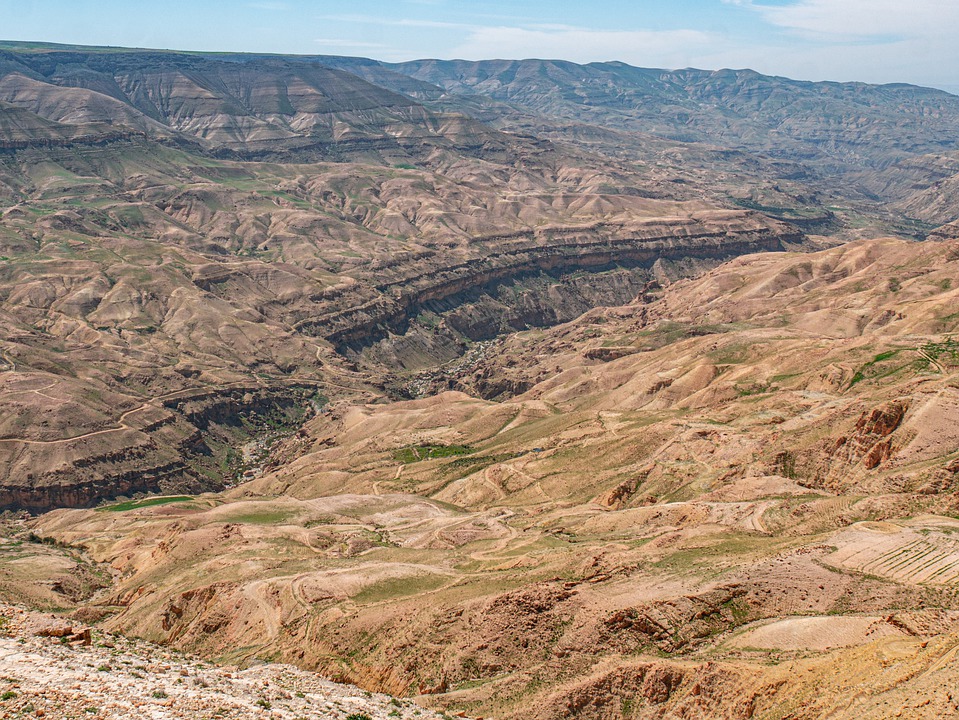Land Portal: What do you feel are the aims of the Conference and what do you hope to achieve?
Dr. El Sherif: I am the Executive Director of the Urban Training Institute (UTI) in Egypt, which is part of the housing and building national research center. We are here because we were keen on planning and conducting this second conference after the first Arab Land Conference in Dubai. We had booked agreements with the Ministry of Housing, being part of the Ministry. After getting the agreement, we went ahead with planning the organization. However, unfortunately, we had to postpone the conference last winter, based on the pandemic situation. We are finally here at the conference and it has been successful from the beginning. We have around 150 people attending in person, which is quite a big number.We also have around 550 or 600 attendees online. Furthermore, the sessions are going very well and we have high level officials attending from various countries.
Land Portal: What do you feel have been some of the challenges around the Conference and what are the next steps?
Dr. El Sherif: As we are all aware, because of the COVID-19 situation, it was really challenging that we have this conference in person. We were apprehensive at first, but we have taken all of the precautions necessary. We have been minimizing the number of people in each room and have been using disinfectants, of course. The other challenge is that the topic of land governance is actually not one of the most discovered in the Arab world. Most people are not familiar with this topic, but part of our goal is to familiarize.
Land Portal: What are some of the key issues being discussed?
Dr. El Sherif: Of course, all the topics are related to land governance, we have land administration, monitoring, land governance, land tenure security. We have also been discussing land registration, informal settlements, fit for purpose land administration and affordable housing. All these topics are important for those working on land rights. We have also welcomed many academics, practitioners, governmental officials and mid-career professional from various Arab countries. The recommendations based on these discussions will come out at the closing session. On the third day, we will be having a full day of masterclasses, which are sessions moderated by experts on different topics.
Land Portal: Have you heard anything particularly intriguing during this Conference that you would like to share?
Dr. El Sherif: There are some recommendations for us for example, for the land use, some new models for providing affordable housing. Also, we have discussed new models for the private sector participation in the land sector, because the private sector involvement in this area is low. Tomorrow we will be hearing from partners about presenting their new philosophies and new models for dealing with informal areas, particularly focusing on land. As I mentioned, we are having some master classes focusing deeply on some important areas. What is also worth mentioning is that we have two sessions on capacity development on the third day of the conference. During one of those sessions, we will be discussing a study that I have conducted on capacity development, the needs and gaps for land governance in the Middle East as well as North African countries. We have another session that aims to work towards a common strategy for capacity development, and the Arab region.
Land Portal: Can you speak a little bit about what that capacity building entails?
Dr. El Sherif: Some people relate capacity building directly with training. However, capacity building is more than that. It reallytalks about building the capacity of the individuals, institutions and organizations. It therefore includes three main parts. The first part is awareness and knowledge and capacity of the individual officials working inlocal governments. Secondly, we are working with GLTN and analyzing gaps occurring at institutional levels. For example, are there courses at Arab universities teaching land governance? We are trying to gather information about who is teaching these topics in different universities in different institutions in the Arab region, and this is a step towards the preparation of training modules and training programs to be used in the Arab region as a next step. Finally, we had the funds for eight proposals, so we negotiated with GLTN. We raised funds and now have 17 proposals. I believe that before the end of 2021, we will have resources and we are going to have a living land governance.

